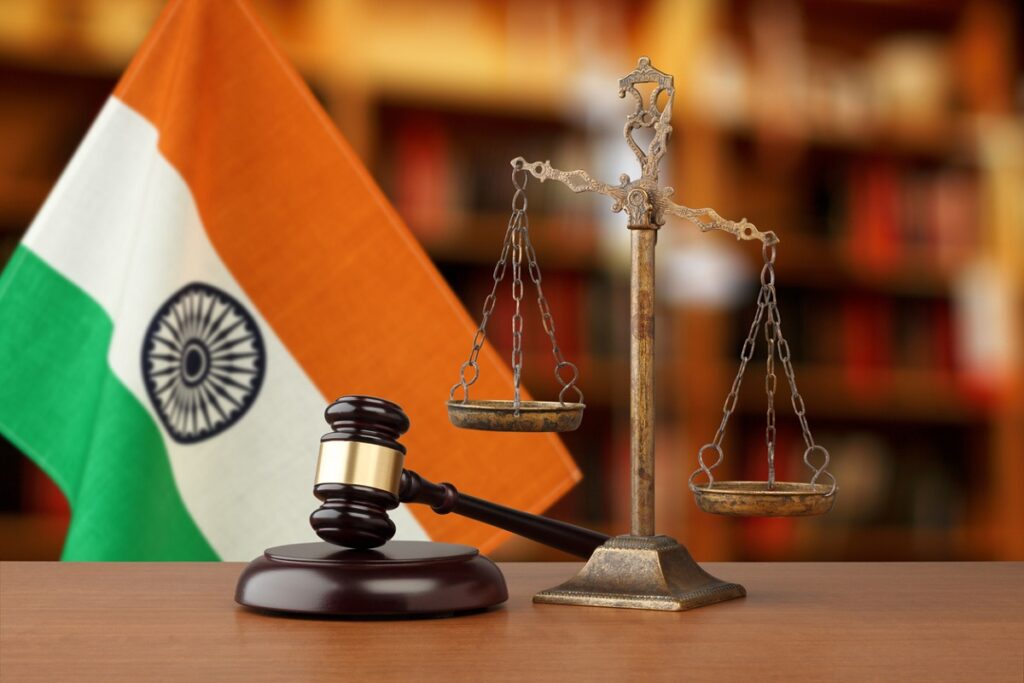INTRODUCTION:

Judiciary exams, also known as judicial service exams or judicial recruitment exams, are competitive examinations conducted to select candidates for judicial positions within the legal system of a country or jurisdiction. These exams play a crucial role in identifying qualified individuals who possess the necessary legal knowledge, skills, and aptitude to serve as judges or magistrates in various courts of law. The judiciary is a vital pillar of the justice system in any country, responsible for interpreting laws, resolving disputes, upholding justice, and safeguarding the rights and liberties of citizens. Judicial officers, including judges, magistrates, and justices, are entrusted with the solemn duty of administering justice impartially, fairly, and in accordance with the law.
PATTERN
Judiciary exams vary depending on the country and the specific legal system in place. However, I can provide you with a general overview of what a judiciary exam pattern might look like.
- Preliminary Examination (Objective Type):
- This is often the first stage of the judiciary exam.
- It typically consists of multiple-choice questions (MCQs) or objective-type questions.
- The subjects covered usually include general knowledge, current affairs, English language proficiency, reasoning ability, and legal aptitude.
- Main Examination (Subjective Type):
- Candidates who qualify in the preliminary exam usually proceed to the main examination.
- This stage typically consists of written papers covering various legal subjects.
- The subjects can include constitutional law, civil law, criminal law, procedural laws (like civil procedure code and criminal procedure code), evidence law, and other relevant laws depending on the jurisdiction.
- Candidates may also be required to write essays or answer questions on legal reasoning and interpretation.
- Interview/Viva Voce:
- Candidates who clear the main examination are usually called for an interview or viva voce.
- This stage is designed to assess the candidate’s personality, communication skills, legal knowledge, and ability to think on their feet.
- Candidates may be asked questions on legal matters, current affairs, and their views on various socio-legal issues.
- Final Selection:
- The final selection is made based on the candidate’s performance in all stages of the examination.
- Merit lists are prepared, and candidates are selected for appointment as judicial officers based on their ranking.

SYLLABUS
- Constitutional Law:
- Judicial review and judicial activism
- Powers and functions of the President and Governors
- Emergency provisions
- Constitutional provisions related to fundamental rights such as right to equality, right to freedom of speech and expression, right to life and personal liberty, etc.
- Constitutional provisions related to directive principles of state policy such as social justice, economic justice, and political justice
- Federalism and distribution of powers between the Union and States
- Amendments to the Constitution and basic structure doctrine
- Important Supreme Court judgments interpreting the Constitution
- Civil Law:
- Specific provisions of the Indian Contract Act related to formation of contract, performance, breach, and remedies
- Essential elements of a valid contract
- Quasi-contracts and contingent contracts
- Concepts of offer and acceptance, consideration, legality of object, and capacity to contract
- Types of partnership and their formation under the Indian Partnership Act
- Rights and liabilities of partners
- Sale of Goods Act provisions related to sale and agreement to sell, conditions and warranties, performance of contract of sale, and remedies for breach of contract
- Specific Relief Act provisions related to specific performance, injunctions, and declaratory decrees
- Transfer of Property Act provisions related to transfer of property by acts of parties and transfer of property by operation of law
- Hindu Law principles related to marriage, succession, adoption, and partition
- Mohammedan Law principles related to marriage, divorce, maintenance, and gifts
- Criminal Law:
- Detailed study of various offenses under the Indian Penal Code (IPC), including offenses against the human body, property, and state
- General exceptions to criminal liability
- Principles of criminal liability and punishment
- Criminal Procedure Code (CrPC) provisions related to investigation, trial, and sentencing
- Indian Evidence Act provisions related to relevancy, admissibility, burden of proof, and examination of witnesses
- Juvenile Justice (Care and Protection of Children) Act provisions related to juvenile justice system and procedures
- Procedural Laws:
- Code of Civil Procedure (CPC) provisions related to institution of suits, pleadings, trial, judgment, and execution
- Code of Criminal Procedure (CrPC) provisions related to arrest, bail, trial, judgment, and sentencing
- Limitation Act provisions related to limitation periods for filing suits and applications
- Registration Act provisions related to registration of documents
- Court Fees Act provisions related to court fees payable for various legal proceedings
- Evidence Law:
- Detailed study of the Indian Evidence Act provisions related to relevancy, admissibility, types of evidence, burden of proof, and examination and cross-examination of witnesses
- General Knowledge and Current Affairs:
- Detailed study of current events, national and international affairs, socio-economic developments, and important personalities
- Analysis of recent judgments, legal reforms, and significant legal developments
- Understanding of major political, social, and economic issues affecting the country and the world
- English Language Proficiency:
- Development of reading comprehension skills through practice with passages from various sources such as newspapers, magazines, and legal texts
- Enhancement of vocabulary through regular reading and usage of words in sentences
- Improvement of grammar skills through exercises on sentence formation, error identification, and sentence correction
- Practice with idiomatic expressions, phrases, and proverbs to enhance language proficiency
- Logical and Analytical Reasoning:
- Development of logical and analytical reasoning skills through solving various types of logical puzzles, analogies, and syllogisms
- Practice with questions on blood relations, directions, seating arrangement, coding-decoding, and critical reasoning
- Enhancement of problem-solving abilities through regular practice and application of logical principles
- Essay Writing:
- Some judiciary exams include an essay writing component where candidates are required to write essays on specific topics related to legal, social, or political issues.
- Candidates may be asked to analyze a legal principle, discuss a recent judgment, evaluate a socio-legal problem, or provide their views on a contemporary legal issue.
- The essays are typically evaluated based on the candidate’s understanding of the topic, clarity of expression, coherence of arguments, and ability to present a well-structured argument.
- Legal Reasoning:
- Legal reasoning questions assess a candidate’s ability to analyze legal principles, apply them to given situations, and arrive at logical conclusions.
- Candidates may be presented with hypothetical legal scenarios and asked to identify legal issues, analyze relevant laws, and provide reasoned solutions or conclusions.
- These questions test the candidate’s understanding of legal concepts, interpretation of statutes, and ability to apply legal principles to real-life situations.
- Case Law Analysis:
- Candidates may be required to study and analyze landmark judgments and their significance in shaping legal principles and doctrines.
- Questions may be asked on the facts of the case, legal issues involved, reasoning of the court, and the implications of the judgment on the law.
- Case law analysis tests the candidate’s familiarity with judicial precedents, their ability to extract legal principles from case law, and their understanding of judicial reasoning.
- Legal Writing:
- Legal writing tasks assess a candidate’s ability to draft legal documents such as plaints, written statements, legal opinions, and memoranda.
- Candidates may be required to draft pleadings or legal opinions based on given facts and legal provisions.
- Legal writing tasks evaluate the candidate’s knowledge of legal terminology, drafting skills, clarity of expression, and adherence to legal formatting and citation norms.
- Numerical Ability:
- Some judiciary exams may include questions testing numerical ability, such as basic arithmetic, percentages, ratios, and proportions.
- Numerical ability questions may be included to assess the candidate’s aptitude for handling quantitative aspects of legal matters, such as calculation of damages or compensation in civil cases.
- Computer Proficiency:
- In recent years, some judiciary exams have incorporated a computer proficiency component to assess candidates’ familiarity with basic computer operations, internet usage, and office productivity software.
- Computer proficiency tests may include tasks such as typing speed tests, formatting documents, using spreadsheets, and browsing the internet to locate legal information.
- Language Proficiency (Regional Language):
- Candidates may be required to demonstrate proficiency in the regional language if the judiciary exam is conducted in a multilingual jurisdiction.
- Language proficiency tests may include comprehension passages, grammar exercises, translation tasks, and writing essays or letters in the regional language.
Candidates should carefully review the exam pattern and syllabus provided by the conducting authority and allocate their preparation time accordingly to cover all the topics and components of the exam effectively. Additionally, regular practice, revision, and mock tests are essential strategies for success in judiciary exams.
CONCLUSION:

Judiciary exams are vital assessments that select competent individuals for judicial roles. Through rigorous testing of legal knowledge and analytical skills, these exams uphold the integrity of the judiciary, ensuring the fair administration of justice. Successful candidates contribute to the legal system’s credibility and public trust, embodying the principles of fairness, integrity, and commitment to upholding the rule of law.
For the Detailed Syllabus: CLICK HERE
For other exams: CLICK HERE